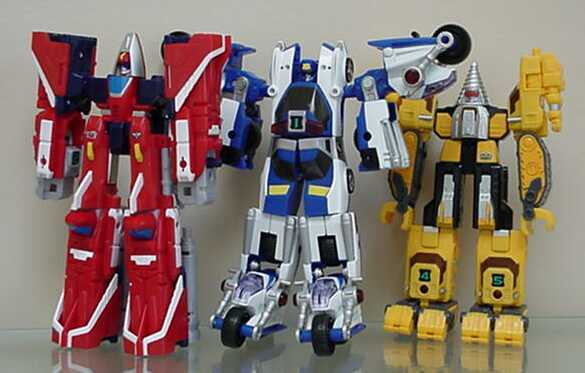BBC's Orphan Black Sends in the Clones
Thank goodness for modern cable TV, because I wouldn't know what to do without BBC. First, it broadcast the amazing three-part zombie miniseries In the Flesh, and last weekend it finished its run of the first ten episode season of Orphan Black. A title like Orphan Black sounds like some kind of anime or manga series (you know, something like Perfect Blue or Death Note), but it's not. It's a sci-fi TV show about a covert experiment in cloning, as told from the clones' perspective.
Orphan Black opens in Toronto with a young woman named Sarah (Tatiana Maslany) who is trying to escape her poor, drug-fueled life and regain custody of her daughter Kira (Skyler Wexler). Sarah was adopted when she was an infant, and her only close friend is her foster brother Felix (Jordan Gavaris). One day, Sarah is waiting at a metro station when a woman who looks exactly like commits suicide by throwing herself in front of an oncoming train. Seizing the opportunity, Sarah decides to assume the identity of the woman, whose name is Beth, as part of a plan to fake her own death and run off with Kira. However, her plan becomes much more complicated when she learns that Beth is not some random look-alike but an actual clone of Sarah--one of a total of nine clones who are dying one by one at the hands of an unknown assassin.
Created by John Fawcett and Graeme Manson, Orphan Black takes the well-worn sci-fi trope of cloning to produce a crackerjack story populated by unexpected plot twists and a large cast of engaging characters. The series begins with a clever hook--a woman who plans to commit identity theft winds up discovering that her own identity was stolen before she was born--and it keeps building on itself in each successive episode until the intense season cliffhanger. It also asks a few provocative questions about the morality of genetic engineering and body modification, and it examines the dangerous intersections of scientific research with absolutist ideology and short-sighted, egocentric pundits who are heralded as "visionaries".
In comparison to other TV series, Orphan Black often reminded me of Joss Whedon's Dollhouse in that it has a main actress who is tasked with playing multiple roles, as well as its depiction of people who appear to be ordinary on the surface but are in fact being ruthlessly exploited by a sinister, clandestine technology. It also made me think of all the sci-fi shows that have used clones as a minor story arc or single episode plot (shows like Star Trek and The X-Files) without exploring the full range of narrative possibilities that clones and cloning can provide.
Of course, simply populating a sci-fi TV show with clones isn't enough to make it good. Orphan Black would have been a much lesser story if the writers did not develop the clones as individual characters or it cast an actress of limited range to portray all of them. Thankfully, the scripts give each of the clones a distinct personality and Maslany brings each of them to life through nuanced performances and seamless composite shots. The scenes where Maslany has to play against herself--or against herself and herself--are very convincing and add so much to the show's drama and suspense. Each clone reacts differently to what is happening, and the show follows each reaction to its logical and unique conclusion.
If you love intrigue, surprises and dark humor in your sci-fi, Orphan Black is a show for you. I don't know how much longer it can keep up its current level of quality, but I'm definitely going to turn in for the second season to find out. Click here to visit the official BBC Orphan Black page.




Comments
Post a Comment